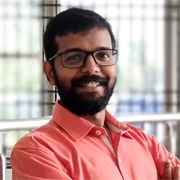As the Congress' organisational juggernaut chugs along to elect a new president, most probably one who does not sport the Gandhi surname, a prominent name doing the rounds is that of Thiruvananthapuram MP Shashi Tharoor.
The million-dollar question now is whether Tharoor will declare himself as the candidate for the September 17 election.
Though he has termed the media reports in this regard as mere speculations, the Lok Sabha member himself has been dropping suggestive hints one at a time, keeping the grapevine alive.
He has more than once made his stand clear that an election to the top post would be good for the party.
By organisational election, it is evident that he means a contest between the undeclared nominee of the Nehru-Gandhi family and the other candidate from outside what critics call the ‘official coterie’.
Tharoor is now the most prominent face of the shrunken ‘G-23’, the ginger group that dared to call for sweeping changes including internal elections to revive the party caught in a vortex of electoral defeats.
But as the party finally decides to hold polls, after being rudderless for three years under an ailing interim chief Sonia Gandhi and a resigned yet de-facto president Rahul Gandhi, several prominent figures of the G-23 are no longer part of the organisation.
Tharoor, in a recent interview, too made it clear that he also has several options before him.
The diplomat-writer-turned-politician has long remained an underutilised talent within the Congress, which he chose to join out of ideological convictions as well as for practical purposes.

Tharoor’s keen interest in the long-pending internal elections shows that he is looking at the process probably as the last chance to reinvigorate his career.
It could also be possible that he might have decided to jump into the fray to sound the reformists’ cause louder and stop the polls from ending up a nomination sham.
Can Tharoor make the cut?
With the current structure of the organisation where family loyalists have a brute majority, at least visibly, it is unlikely that a comparatively newcomer like Tharoor can make any significant gains in the poll for the top post. He knows that well too.
This practical awareness and some concerns about the electoral process seem to have left him a bit confused. He may be going through a pragmatist’s dilemma.
He is not naive to fantasise about a win at the moment. He knows that he should have the numbers at least for a significant defeat before throwing his hat in the ring.
A repeat of the 2000 election could be the last thing the smart politician in Tharoor would want. That year, the last time the party witnessed an internal election, Jitendra Prasada secured just 94 of the 7,542 valid votes cast when he contested against Sonia Gandhi.
“Right now there is no clarity about the delegates who would form the electoral roll for the internal elections. We have only a number – approximately 9,000 voters, but we don’t know who they are. That could be one reason Dr Tharoor is concerned about,” a source close to the MP told Onmanorama.
There are also apprehensions that more delegates could be added or replaced before the elections, especially during the Bharat Jodo Yatra which Rahul Gandhi is set to start on September 7. The “rebels” fear that the electorate could be in all likelihood supporters of the official faction who wants a Sonia-Rahul nominee at the helm.
The electoral roll has already become a bone of contention between the two factions with leaders including Anand Sharma and Manish Tewari calling for transparency in the poll process.
The official faction has refused their demand to make the voters’ list open. Tharoor has also concurred with his G-23 colleagues’ call for transparency. “Certainly, I think it’s important that everybody should have transparency on the electoral rolls. If that’s what Manish has asked for, then I’m sure that it’s a principle that everybody would agree with. Everybody should know who can nominate and who can vote. There is nothing wrong with that,” Tharoor said in Thiruvananthapuram on Wednesday.
He also flaunted his Hindi proficiency in a quirky response to a query that if the Congress president has to be someone from the Hindi belt.
According to the Congress constitution, the All India Congress Committee (AICC) delegates are elected through a bottom-to-top approach. The state-level elections were to be completed by September 20 according to the original schedule.
However, they have not taken place so far. Reports suggest that in the current scenario, the existing AICC delegates, whose term has already expired, are likely to form the electorate.

The source from the Tharoor camp exuded that the leader, if he chooses to contest, can swing a significant number of votes in his favour with his personal connections.
“He will get good support from Kerala also since it’s going to be a secret ballot system,” the source said.
Another area of concern is that it is still not clear if there would be an election to form a new Congress Working Committee (CWC) or not.
If there is one, those in the rebel camp, including Tharoor, are most likely to make use of it because a significant presence in the CWC – the highest decision-making body of the party – would help them have a grip on organisational matters which are otherwise taken by an uninspiring group which has time and again proven their inability to devise a strategy to challenge the BJP under Narendra Modi and Amit Shah.

















